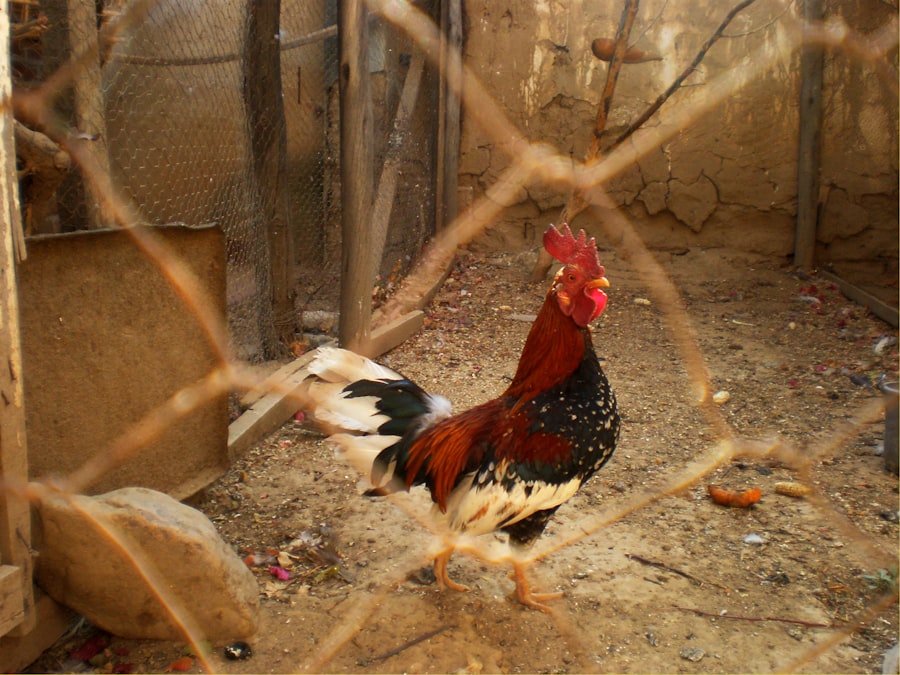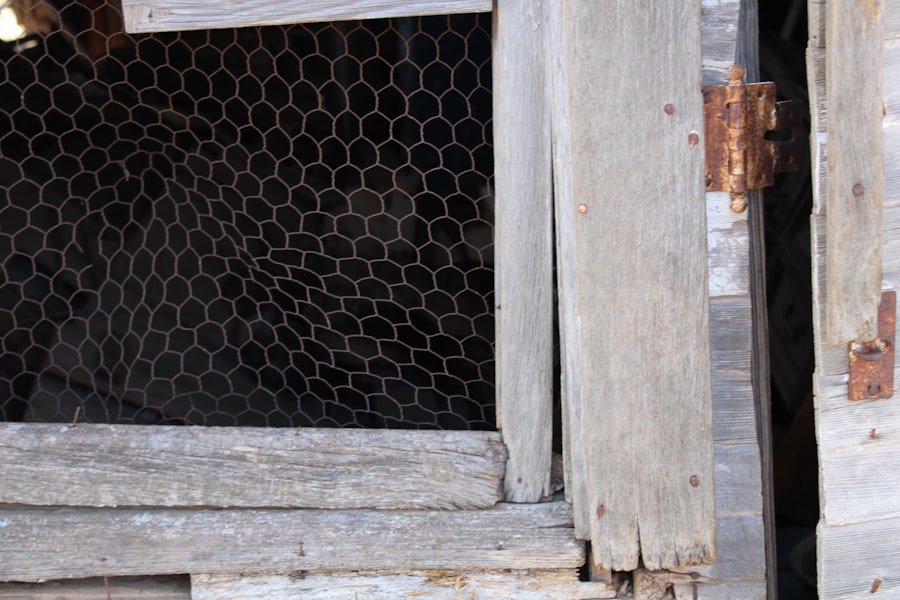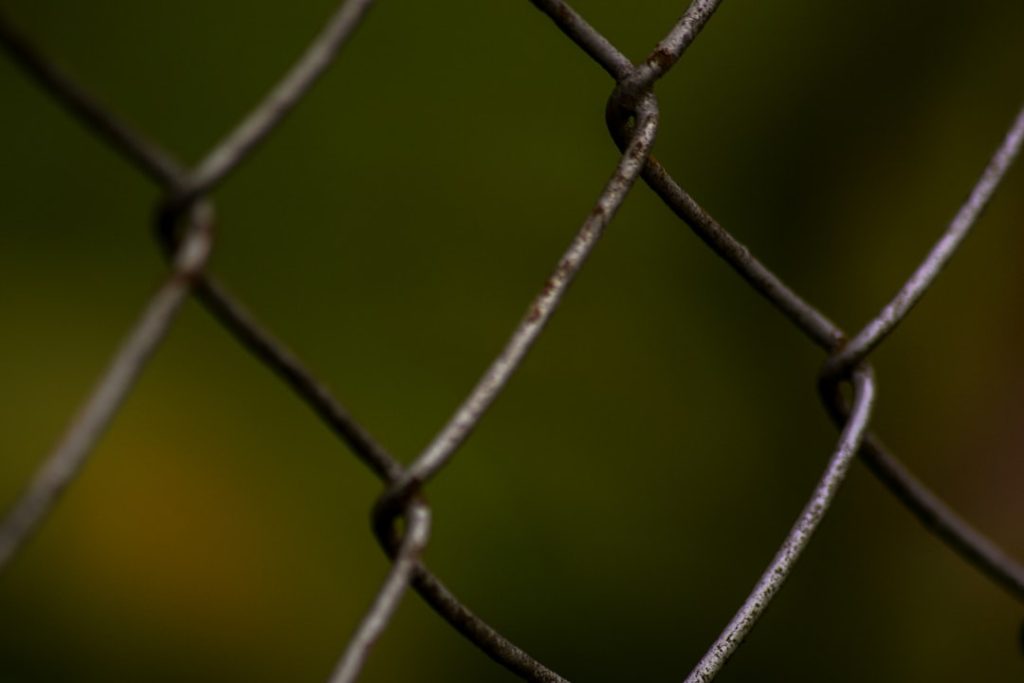Chickens are inherently social creatures that flourish in flock settings. They establish a hierarchical structure known as the pecking order, which consists of dominant and subordinate individuals. Comprehending this social dynamic is essential for maintaining harmony within the group.
Chickens also exhibit innate behaviors such as foraging, dust bathing, and roosting, which are crucial for their physical health and psychological well-being. By recognizing and accommodating these natural tendencies, chicken keepers can create an environment that fulfills their birds’ needs and minimizes stress. The communication system of chickens is sophisticated, encompassing vocalizations, body language, and even facial expressions.
They employ these signals to interact with one another and with their human caretakers. Developing the ability to interpret these cues allows chicken owners to better understand their flock’s needs and emotional states. This insight can help prevent behavioral issues and foster a strong connection between chickens and their caretakers.
Table of Contents
- 1 Securing the Coop
- 2 Providing Adequate Space and Amenities
- 3 Establishing a Routine
- 4 Using Positive Reinforcement
- 5 Addressing Behavioral Issues
- 6 Seeking Professional Help
- 7 FAQs
- 7.1 What are some ways to keep chickens in their coop?
- 7.2 What type of fencing is best for keeping chickens in their coop?
- 7.3 How can I prevent my chickens from escaping their coop?
- 7.4 What are some ways to encourage chickens to stay in their coop?
- 7.5 Are there any specific coop designs that can help keep chickens from escaping?
Key Takeaways
- Chickens have social hierarchies and can exhibit aggressive behavior, so it’s important to understand their natural behavior and needs.
- Securing the coop is essential to protect chickens from predators and ensure their safety.
- Providing adequate space, nesting boxes, perches, and dust baths is crucial for the well-being of chickens.
- Establishing a routine for feeding, cleaning, and letting chickens out to roam can help reduce stress and behavioral issues.
- Using positive reinforcement, such as treats and praise, can help train chickens and encourage desired behaviors.
- Addressing behavioral issues promptly and seeking professional help if needed is important for the health and happiness of the chickens.
Securing the Coop
Predator-Proofing the Coop
To build a secure coop, it’s vital to use sturdy materials and ensure that it’s predator-proof. This includes using hardware cloth instead of chicken wire, securing all openings with locks or latches, and burying wire mesh around the perimeter to prevent digging predators from gaining access.
Providing Adequate Ventilation and Protection
In addition to protecting against predators, the coop should also provide adequate ventilation and protection from the elements. Proper ventilation is crucial for maintaining good air quality and preventing respiratory issues.
Insulation and Weatherproofing
The coop should also be insulated and weatherproofed to keep the chickens comfortable in all seasons. By securing the coop, chicken owners can provide a safe and comfortable environment for their flock.
Providing Adequate Space and Amenities

Chickens need plenty of space to move around, forage, and engage in natural behaviors. Overcrowding can lead to stress, aggression, and health issues within the flock. The general rule of thumb is to provide at least 2-3 square feet of space per chicken inside the coop, and 8-10 square feet per chicken in the outdoor run.
This allows them to move around freely and reduces the risk of territorial disputes. In addition to space, chickens also need amenities such as perches, nesting boxes, and dust bathing areas. Perches give chickens a place to roost at night, which is essential for their safety and comfort.
Nesting boxes provide a quiet, private space for hens to lay their eggs. Dust bathing areas allow chickens to engage in natural grooming behaviors that help keep their feathers clean and free of parasites. By providing adequate space and amenities, chicken owners can ensure that their flock is happy and healthy.
Establishing a Routine
Chickens thrive on routine and predictability. Establishing a consistent daily routine can help reduce stress and anxiety within the flock. This includes feeding, watering, and letting the chickens out to free-range at the same times each day.
It’s also important to maintain a regular cleaning schedule for the coop and run to ensure good hygiene and prevent disease. In addition to a daily routine, chickens also benefit from a predictable seasonal routine. This includes providing extra warmth in the winter, extra shade in the summer, and adjusting feeding schedules based on the changing daylight hours.
By establishing a routine, chicken owners can create a stable and secure environment that promotes the well-being of their flock.
Using Positive Reinforcement
Positive reinforcement is a powerful tool for shaping the behavior of chickens. By rewarding desirable behaviors with treats or praise, chicken owners can encourage their flock to engage in positive behaviors such as coming when called, using nesting boxes, or staying off of certain areas. This can be especially useful for training chickens to be comfortable with human interaction and handling.
It’s important to use positive reinforcement consistently and immediately after the desired behavior occurs. This helps chickens make the connection between their actions and the reward. It’s also important to be patient and persistent, as it may take time for chickens to learn new behaviors.
By using positive reinforcement, chicken owners can create a strong bond with their flock and encourage positive behaviors.
Addressing Behavioral Issues

Common Behavioral Issues
Despite best efforts, behavioral issues may still arise within a flock. Aggression, feather pecking, egg eating, and excessive noise are common behavioral issues that chicken owners may encounter. It’s important to address these issues promptly to prevent them from escalating and causing harm to the flock.
Identifying and Eliminating Stressors
One approach to addressing behavioral issues is to identify and eliminate potential stressors within the flock’s environment. This may include providing more space, adding enrichment activities, or adjusting the social dynamics within the flock.
Observing the Flock
It’s also important to observe the flock closely to identify any individual chickens that may be causing or experiencing distress.
Seeking Professional Help
In some cases, addressing behavioral issues may require professional help. A veterinarian or animal behaviorist with experience in poultry can provide valuable insight and guidance for addressing complex behavioral issues within a flock. They can help identify underlying health issues or environmental factors that may be contributing to the problem.
Professional help may also be necessary for addressing aggressive or dangerous behaviors within the flock. In some cases, aggressive chickens may need to be separated from the flock or rehomed to prevent harm to other chickens or humans. A professional can provide guidance on how to safely manage these situations and prevent further issues from arising.
In conclusion, understanding the behavior of chickens is essential for creating a harmonious environment within the flock. By securing the coop, providing adequate space and amenities, establishing a routine, using positive reinforcement, addressing behavioral issues, and seeking professional help when necessary, chicken owners can ensure the well-being of their flock and create a strong bond with their feathered friends.
If you’re looking for more information on keeping your chickens in their coop, you may also be interested in learning about the importance of providing a coop for turkeys. Check out this article on poultrywizard.com to learn about the benefits of having a coop for turkeys and how it can contribute to their overall well-being.
FAQs
What are some ways to keep chickens in their coop?
Some ways to keep chickens in their coop include using secure fencing, providing enough space and enrichment inside the coop, and ensuring that the chickens have access to food and water inside the coop.
What type of fencing is best for keeping chickens in their coop?
A sturdy wire mesh or hardware cloth is best for fencing to keep chickens in their coop. It should be buried at least 6 inches into the ground to prevent predators from digging underneath.
How can I prevent my chickens from escaping their coop?
To prevent chickens from escaping their coop, make sure there are no gaps or holes in the fencing, and regularly check for any signs of wear or damage. Additionally, provide enough space and enrichment inside the coop to keep the chickens content.
What are some ways to encourage chickens to stay in their coop?
Providing a comfortable and safe environment inside the coop, ensuring that the chickens have access to food and water, and keeping the coop clean and well-maintained can all encourage chickens to stay inside their coop.
Are there any specific coop designs that can help keep chickens from escaping?
Coop designs with secure latches on doors, predator-proof windows, and adequate ventilation can help keep chickens from escaping. Additionally, providing roosting bars and nesting boxes inside the coop can make it more appealing for the chickens to stay inside.
Meet Walter, the feathered-friend fanatic of Florida! Nestled in the sunshine state, Walter struts through life with his feathered companions, clucking his way to happiness. With a coop that’s fancier than a five-star hotel, he’s the Don Juan of the chicken world. When he’s not teaching his hens to do the cha-cha, you’ll find him in a heated debate with his prized rooster, Sir Clucks-a-Lot. Walter’s poultry passion is no yolk; he’s the sunny-side-up guy you never knew you needed in your flock of friends!







